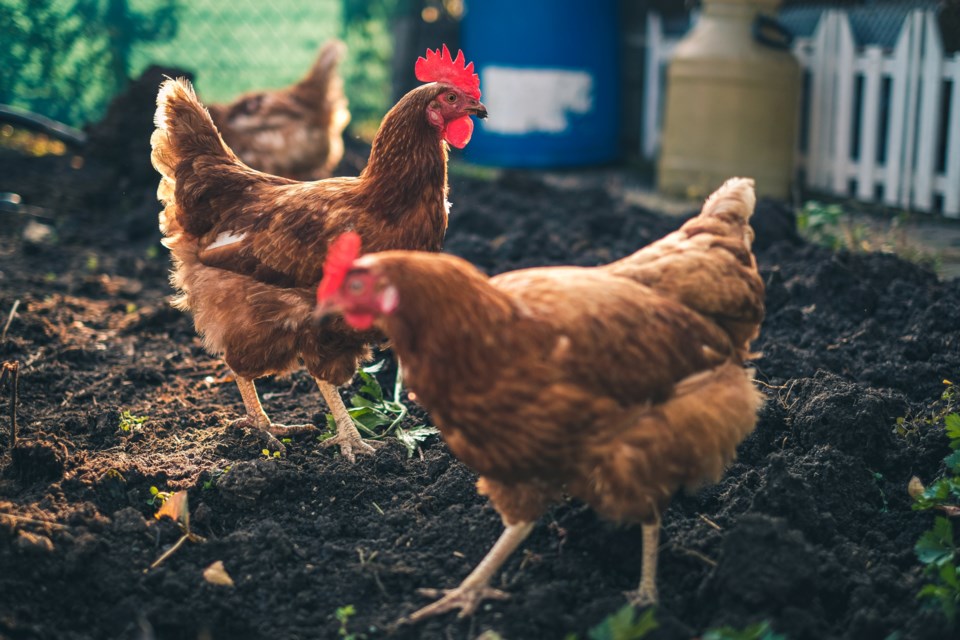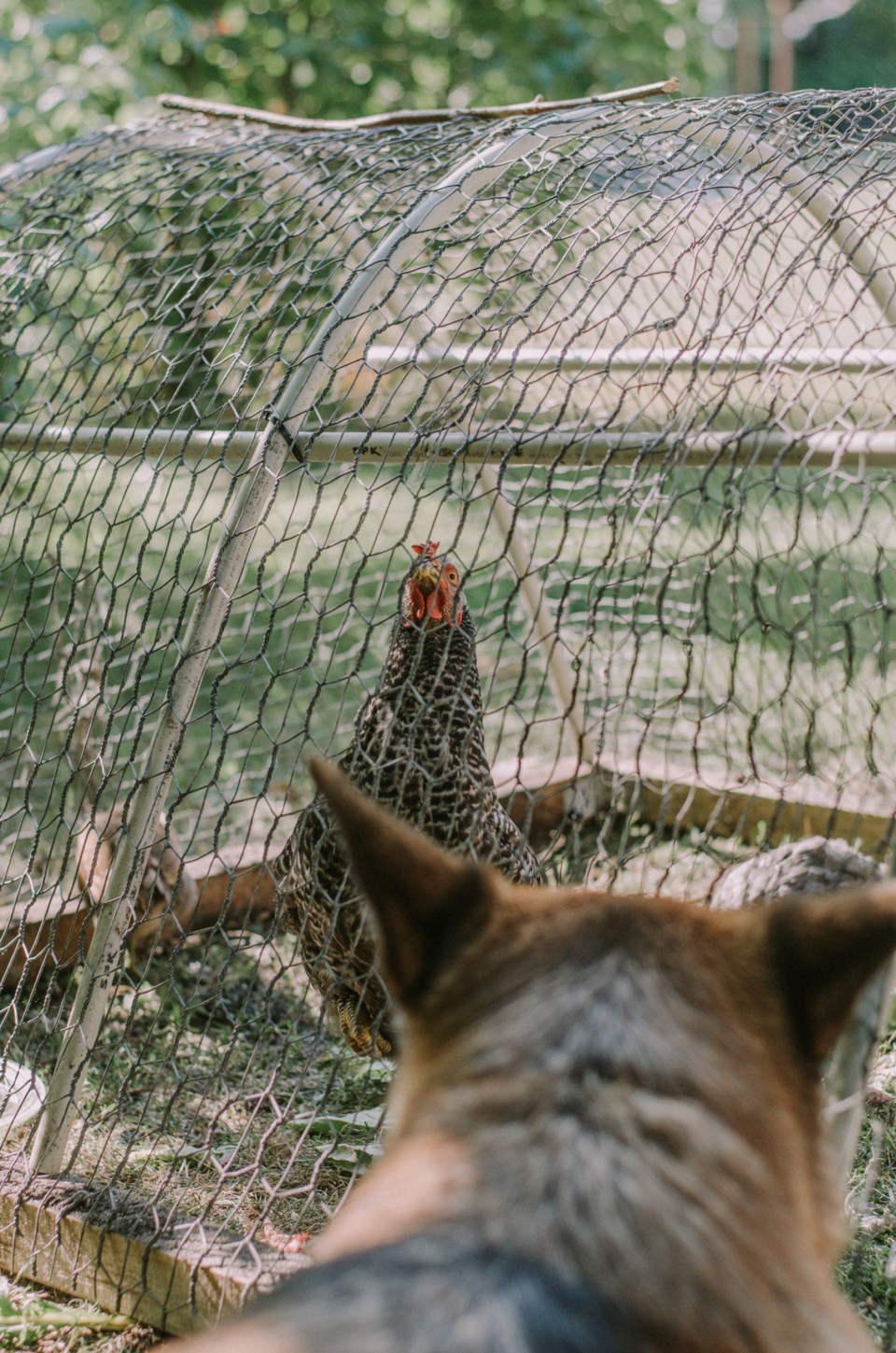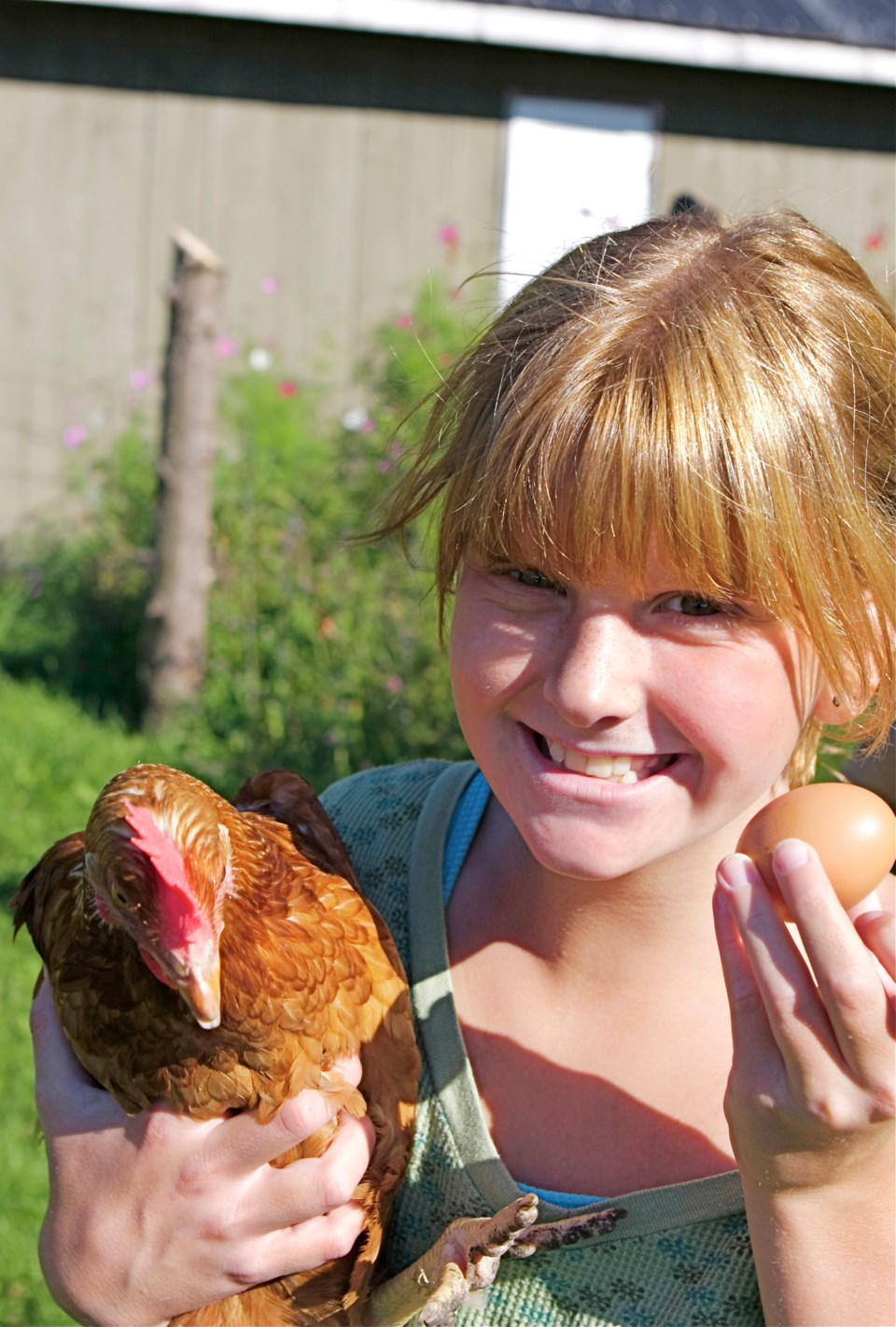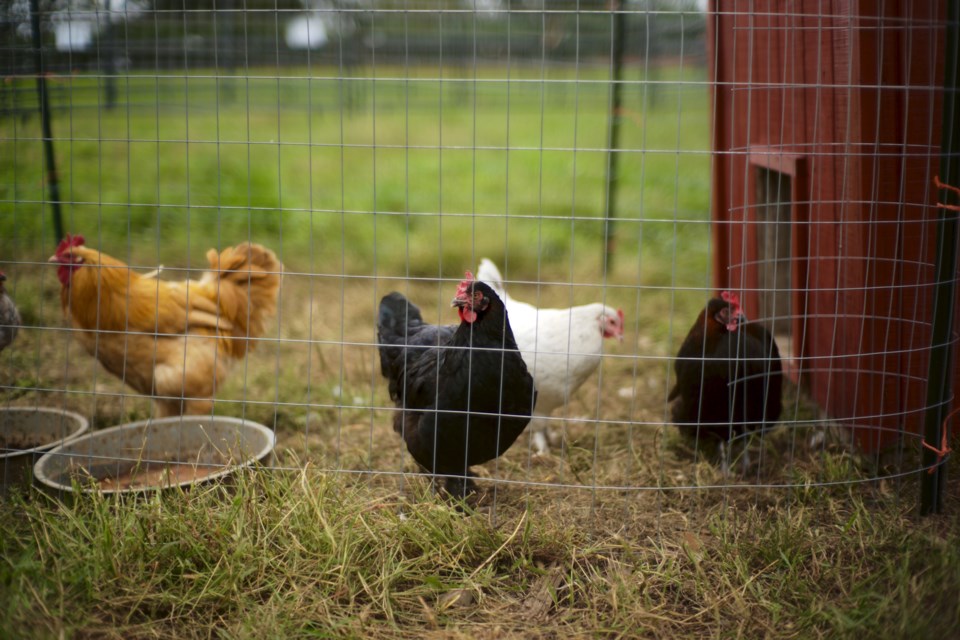When it comes to eating locally, nothing gets closer to home than collecting eggs from your own backyard.
“Many people still think that hens belong on farms, but a well-built urban coop can be quite attractive,” said Laura Klassen, a volunteer with River City Chickens. “[Hens] are quite a lovely addition to an urban backyard.”
River City Chickens, described as an informal group of citizens who support responsible hen care in urban environments, have led several Hens 101 workshops hosted by the City of Airdrie.
Launched in 2017, the City of Airdrie's Backyard Hen Pilot Project was made permanent in 2021, allowing up to a maximum of four hens to be kept on a single-family lot (roosters and chicks are not permitted).

While the initial pilot project was hailed a “huge success” by the City, only seven applications have been received since the program became permanent. As of May 12 this year, 34 residences are now raising backyard hens in Airdrie, with the vast majority from the initial pilot project, according to Tega Odogu, a planner with the City.
She said though the program's popularity has had a slow uptake, "We believe that with more awareness, more people will be interested in having this."
While raising hens may seem daunting, chickens are low-maintenance animals that can be less expensive to keep than cats or dogs, according to River City Chickens.
“In small numbers – three to six hens per backyard – [chickens are] easy to care for and to keep odour-free,” states the organization. “And they can supply a family with a constant supply of fresh, clean eggs.”
Unlike roosters, the noise from the clucking and cackling hens is much less than that of a barking dog, the organization states.
“Hens can be very funny,” Klassen said. “They are friendly and inquisitive, interested in everything. They are generally very industrious and spend a lot of time exploring their world by pecking and scratching.”
She added each hen has its own personality and preferences for things such as a preferred spot in the run to take a dust bath or a particular nest box.
“Hens can be quite amusing and lively, and children appreciate that quality in a pet,” Klassen said. “Many parents appreciate that hens can help their children learn about where their food comes from.”
Both Klassen and Odogu advise potential hen owners to do their research before they create their coops.
“First, make sure that you know what you're getting involved with,” Odogu said. “Make sure that you have the information ready that will help you to raise hens before you bring in an application.”
The Backyard Hen Pilot Project webpage on airdrie.ca has links to several helpful sites, as well as the Backyard Hens Pilot Project Participant Guidelines, which outlines expected care, coop standards and information about the program.
Klassen said prospective hen owners need to carefully research coop requirements for a cold climate and urban environment, and warned online sources are often geared toward raising hens in warmer climates or rural environments. She said homeowners in Airdrie will need to understand how to keep an insulated coop well ventilated, yet draft free; how to keep water thawed in winter, and how to keep runs protected from snow.
“Taking care of hens requires a good level of commitment. Owners cannot skimp on a coop or run. Pre-made structures are often not suitable for our climate as they lack insulation and are not adequately ventilated. Draft-free ventilation is critical,” Klassen said.
As outlined in the City's guidelines, the maximum henhouse and run size are 50 square feet each. The coop – comprised of the henhouse and run – is required to be fully enclosed (i.e. fencing, chicken wire, roof covering) to provide hens secure access to exercise, sunlight, earth, and vegetation.
“[The coop is] to be constructed to prevent the hens' escape and prevent entry by intruders/predators,” states the guide.

Klassen said that while cats are often indifferent to full-grown hens, dogs can pose a threat as “many dogs have a prey drive that makes them dangerous to hens.” She said a secure coop is therefore essential for those who also own dogs.
“Also, hens require daily attention – at least twice daily, in all weather – to ensure that they have proper food and water, and to ensure that droppings are removed and eggs collected on a timely basis,” she said, adding owners need to be familiar with their hens to notice signs of illness.
“Hens can live for a long time – maybe even 10 years – during which time their egg production will decline. Owners need to think through many factors before they make a decision to get hens,” Klassen advised.
While the City does not specify permitted breeds, Klassen said it's critical hens be cold-hardy. She suggests Wyandottes or Orpingtons, which have solid, well-feathered bodies and small combs (the fleshy growth that sits on top of the chickens' head) and wattles (the fleshy growth that hangs down under the hens’ chin). For more information, visit the Breed Selector Tool at mypetchicken.com
Potential hen owners will pay a $200 application fee and can expect a five- to six-week application process, according to Odogu.
"They have to provide us with landowner authorization if they're not the landowners. They have to provide us with a property class or site plan showing their property and where their hen house will be located," she said. "They have to provide us with a breakdown of how they're going to take care of the chicken, how they're going to clean the hens, to provide them feed [and] keep them warm during the winter."

Odogu said once an application is approved, there is a 21-day appeal period to allow neighbours to voice concerns. If no appeals are received, the resident is issued a development permit.
Participants will be required to attend a training session, must permit regular inspections of their coop and must obtain Premises Identification numbers for their animals.
For more information on urban agriculture and backyard hens, visit airdrie.ca



